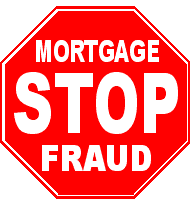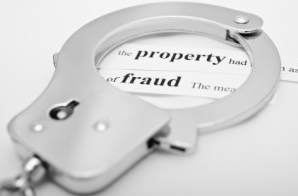Mortgage and real estate
fraud entails deliberate falsification, misrepresentation, or action with the
aim of financial gain through illegal, illicit, and unethical means within mortgage
and real estate transactions. It’s a
broad definition that encompasses every consumer who lies about income on their
loan application, all the way up to the most sophisticated and treacherous
criminals who bilk the banks out of millions of dollars in phantom
transactions.
Who commits mortgage fraud?
Mortgage fraud in all its forms, big or small, is
perpetrated by a variety of players. The
FBI’s special report on mortgage fraud states that guilty parties include mortgage
brokers, loan officers, lenders, appraisers, underwriters, accountants, real
estate agents, attorneys, land developers, developers, investors, builders,
bankers, escrow and title employees.
Some are legitimate and licensed business people who think they are just
bending the rules, while others are career, rogue criminals.
The FBI reports that organized crime is more frequently
involved with mortgage fraud, not only to steal money but to launder existing drug
money or money from other illicit activities.
In recent cases there have been Asia, Balkan, Armenian, La Cosa Nostra,
Russian, and Eastern European organized crime groups involved with various
mortgage and real estate fraud schemes.
While this sounds like the stuff of action movies, the majority
of fraud is perpetrated by regular consumers, lending professionals, realtors
and loan officers who think they are only bending the rules, but cause
irreparable damage to the greater system and betray the consumer’s trust.
Where does it occur?
Mortgage fraud occurs in every state and every city of the
country, but there are some areas that seem to be hotspots of illegal activity,
for a bevy of factors. Recently, Nevada
jumped ahead of California as the #1 riskiest state for mortgage fraud. California is second, followed by the
District of Columbia and then Florida.
However, when it comes to zip codes where mortgage fraud is
rampant, California still has four out of the top ten, and ten out of the top
25.
The true price tag of
mortgage and real estate fraud is almost impossible to tally. Of course only a portion of crimes every get reported,
or arrests and convictions are made. In
addition, the cost of lower-level fraud, like lying on mortgage applications,
overestimating appraisals, and the practice of pocket listings, may not have
consequences until much later on. But
there are some factors that help guide us:
According to CoreLogic,
since 2012, mortgage application fraud has totaled more than $30 billion
annually. Note that’s just mortgage
applications.
That same source reports
that in 2010 alone, more than $10 billion in mortgage loans originated based on
fraudulent data on applications.
Financial institutions also
have their own figures to report, as their Suspicious Activity Reports in 2010
red flagged $3.2 billion in losses, a 16% increase from 2009 and a shocking
117% increase since 2008.
The
following five states had the highest estimated value of fraud among mortgage
applications per year:
California: $864 million
New York: $278 million
Florida: $273 million
Texas: $261 million
Virginia: $231
million
Is all fraud treated equally?
Generally, it’s considered there are two kinds of fraud:
Fraud for property/housing.
This is when a consumer falsifies documents, lies, or
manipulates numbers on loan applications or other mortgage and real estate
paperwork in order to obtain a primary residence. Sometimes it is still fraud, it is well
intentioned and the person intends to pay back the loan.
Fraud for profit.
This involves schemes with the sole purpose of stealing
money or making a profit illegally.
Law enforcement agencies estimate that roughly 20% of all
mortgage fraud is fraud for profit.
Loan Origination Schemes
Backwards Application Schemes
Fraudulently Inflated Appraisals
Illegal Property Flipping
Title/Escrow/Settlement Fraud
Real Estate Investment Schemes
Short Sale Schemes
Commercial Real Estate Loan Fraud
Foreclosure Rescue
Advance Fee Schemes
Builder Bailout Schemes
Equity Skimming Schemes
Debt Elimination/Reduction schemes
Bankruptcy Fraud
Loan Modification Scams
Rent-to-Own Scams
Multiple Listing Service manipulation and pocket listings.
Who is fighting
mortgage and real estate fraud?
There are several organizations that investigate and prosecute
fraudulent activities. HUD, the
department of Housing and Urban Development, has its own internal mechanisms to
find and screen out fraudsters, and pending investigations into single-family
residential loans hit an all-time high recently at 765. The same is true of mortgage giants Fannie
Mae and Freddie Mac.
Financial institutions like banks and lenders are required
to file SAR’s, or Suspicious Activity Reports, when they detect some sort of
impropriety, even if it implicates their own employees or dealings. In 2010, there were 70,533 mortgage fraud
–related SAR’s filed!
The Internal Revenue Service is extremely active in battling
real estate and mortgage fraud, especially from the angle of dissecting the
paper trail of financial criminals.
They’re focus is on finding and collecting evidence to prove tax
improprieties and money laundering activities, but there is a huge crossover
into real estate and mortgage transactions.
The IRS can take civil action by calling for an IRS audit,
which happens thousands of times every year.
The IRS also works closely with the Department of Justice
for criminal cases. The DOJ also
includes the FBI, Federal Bureau of Investigation. Starting in June of 2010, the DOJ and FBI
announced a join special taskforce aimed to combat real estate and mortgage
fraud, named Operation Stolen Dreams. It’s
been the largest collective effort to date.
So far, 1,125 defendants have been identified, 485 arrests made, 673
indictments, and 336 convictions. The
FBI has earmarked the defendants responsible for $2.3 billion in mortgage fraud
losses.
Operation Stolen Dreams uses sophisticated investigative
methods, such as wiretaps and undercover operatives, to collect evidence and
prosecute offenders. The FBI also works
closely with 25 different mortgage fraud task forces. Recent estimates say they have well over
3,000 active investigations. More than
70% of those pending investigations involve cases with dollar losses totaling
more than $1 million.
Do market factors
come into play?
As we’ve seen, first with the real estate market decline and
now with its rebound, criminals are intent on perpetrating fraud no matter what
the market conditions. It seems that
different types of fraud are more prevalent in different markets. When the market is in a decline, fraudsters
prey on financial desperate victims and foreclosure, short sale, loan
modification, and debt rescue scams. When
the market is appreciating it’s far easier for them to funnel money through
bloated appraisals, straw buyers, and loan misappropriations.
Statistics show that it’s far easier for criminals to make
bigger money through fraud in a rising market, where consumer victim
exploitation increases in down markets.
HUD reports that fraudsters
are trolling unemployment offices, churches, and public foreclosure rescue
fairs targeting vulnerable homeowners.
In addition, criminals find their victims:
With Craigslist ads.
Small signs on the side of
the road.
With multi-level marketing
and Ponzi scheme organizations.
Social media ads and posts.
Websites
YouTube videos.
False news stories.
Seminars and workshops.
Driving by houses and seeing
vacant, boarded up homes, houses with For Rent, For Sale, or For Sale by owner
signs, or houses with notices on the door.
How can you prevent mortgage fraud?
Report any suspicious activity to your local law enforcement agencies or the FBI. Most cities have a governing body of realtors and mortgage professionals, like the Sacramento Association of Realtors, etc., and you can report any impropriety to them, as well. If you are involved in a transaction and suspect fraud, keep careful notes of all communications, confirm your questions via email so there is a paper trail, and double check any gray areas with multiple sources, like title companies, etc. You can also talk to your CPA or account and attorney to make sure you are not a victim of mortgage fraud - or unwittingly perpetrating it yourself.



No comments:
Post a Comment